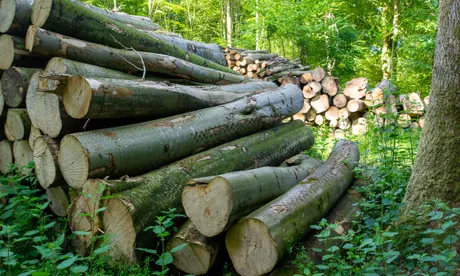A new report has called on ministers to, as a matter of urgency, scrap the huge subsidies and tax breaks given to conifer forests because they do too little to combat the climate crisis.
The report from the Royal Society of Edinburgh said that the tens of millions of pounds in subsidies given to the timber industry should instead be spent on longer-living native forests, which have greater and clearer climate and biodiversity benefits.
It said that the Scottish and UK governments are wrong to argue that public subsidies are needed to help plant more, larger conifer forests. These plantations are largely monocultures using a single species that have a relatively short lifespan.
Instead, public subsidies should be diverted to planting millions of native broadleaf trees, including in urban areas, which capture and keep more CO2, support more plant and animal species, store more carbon in the soil, and have a far longer lifespan.
Read also: Stakeholders move to restore Nigeria’s mangroves
The RSE, Scotland’s national academy, said that significant changes in government strategy were urgently needed at a time when governments are cutting public spending, including on nature recovery.
“Our scarce public funds must be used to maximise benefits for both the public and our environment,” said Prof Pat Monaghan, regius professor of zoology at the University of Glasgow and one of the report’s authors.
She said: “We now face the twin crises of climate change and biodiversity loss. We must ensure that our investments in tree planting are done in ways that reduce our carbon emissions without reducing our precious and fragile biodiversity.”
The RSE said that it was very surprised the Treasury had no data on how much tax the exchequer had foregone due to these tax breaks, even though these policies had been criticised repeatedly in recent decades.
Story was adapted from the Guardian.
